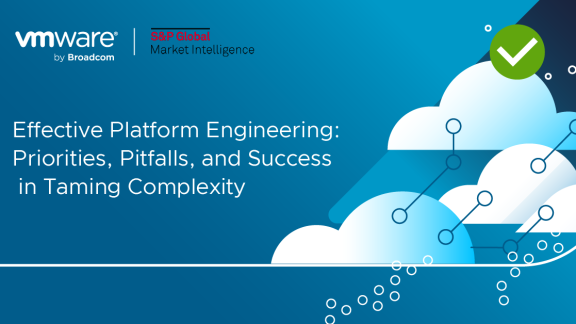Guest Post by Jay Lyman, S&P Global Market Intelligence
This blog is the first in our series on Kubernetes Without Complexity, a companion to the 451 Research report, “Cost, Productivity, Security Shape Today’s Platform Engineering.“
Complexity has always been a core challenge when deploying cloud-native software such as Kubernetes. It is also a key consideration when implementing platform engineering practices and processes to manage cloud native environments. Over this series of blog posts, we will explore how unified platforms and simplified operations help organizations realize the full promise of platform engineering.
Platform engineering challenges and opportunities
To overcome the array of complexity-related challenges across infrastructures, applications, tools, and teams, enterprise organizations must enable simplified operations and maintain consistency with federated platforms that can integrate and evolve with a variety of technologies.
Consolidated, unified platforms that support integration across venues and software components are critical to overcoming complexity. For Kubernetes, this also means supporting the many different open source components that make up an effective deployment, including orchestration, monitoring and observability, and security functions. Further, as cloud-native constructs and containers are deployed across a broader swath of enterprise applications, teams must centrally and consistently manage both container-based and VM-based applications on a single platform.
Much like DevOps, platform engineering relies on breaking down silos within an organization to support teams and personas beyond software developers and IT admins (e.g., cloud admins, platform engineers, security teams) with self-service capabilities, as well as aligned objectives and incentives to foster collaboration.
Conquer the complexity with unified platforms
Comprehensive, end-to-end platforms that seamlessly connect compute, storage, networking, and security resources with unified lifecycle management, and that also facilitate integrations across the software development and deployment process, can help enterprises to better support their broad array of applications and teams. This can help address complexity issues by allowing teams to centrally and consistently manage platforms using a common skillset, further reducing costs by reducing the need for new hires and talent acquisition.
Conquering complexity and integration challenges associated with platform engineering can enable improved developer productivity, faster delivery time, improved security and higher-quality code—sought-after benefits that are frequently identified in our Voice of the Enterprise surveys. Other advantages include cost and labor efficiencies, consistency and standardization, and enablement of on-demand, self-service use, further illustrating the value of overcoming key platform engineering challenges.
Key value and benefits
Unified and integrated platforms that support the array of tools and teams involved in today’s software development and deployment are critical to enabling effective platform engineering and collaboration. Enterprise organizations that invest in and mature their platform engineering practices can gain a competitive edge in the market through cost-effective and simplified deployments, increased developer productivity and innovation.
About the Author
Jay Lyman is a senior research analyst with the 451 Research Cloud Native and Applied Infrastructure & DevOps channels at S&P Global Market Intelligence. He covers software development, hybrid and multi-cloud infrastructure management and orchestration, and enterprise use cases that focus on the confluence of software development and IT operations known as DevOps. Jay’s analysis encompasses evolving software release and IT operations models, including generative AI’s role in both, and the technology used to create, deploy and support infrastructure and applications in today’s enterprise and service provider markets. This research includes data and analysis from the Voice of the Enterprise: DevOps survey of both IT decision-makers and practitioners. Other key areas of research include cloud native, open-source software and enterprise end users. Jay arrived at S&P Global Market Intelligence through its 2019 acquisition of 451 Research. Prior to 451 Research, Jay worked as a journalist for various media firms and publications including CMP Media, LinuxInsider, NewsForge, Time Magazine and the Associated Press. Jay has been a speaker at numerous industry events, including IC3, DevOps Days, LinuxCon and OSCON, covering topics such as cloud computing, DevOps, open-source software and enterprise case studies.

Discover more from VMware Cloud Foundation (VCF) Blog
Subscribe to get the latest posts sent to your email.




